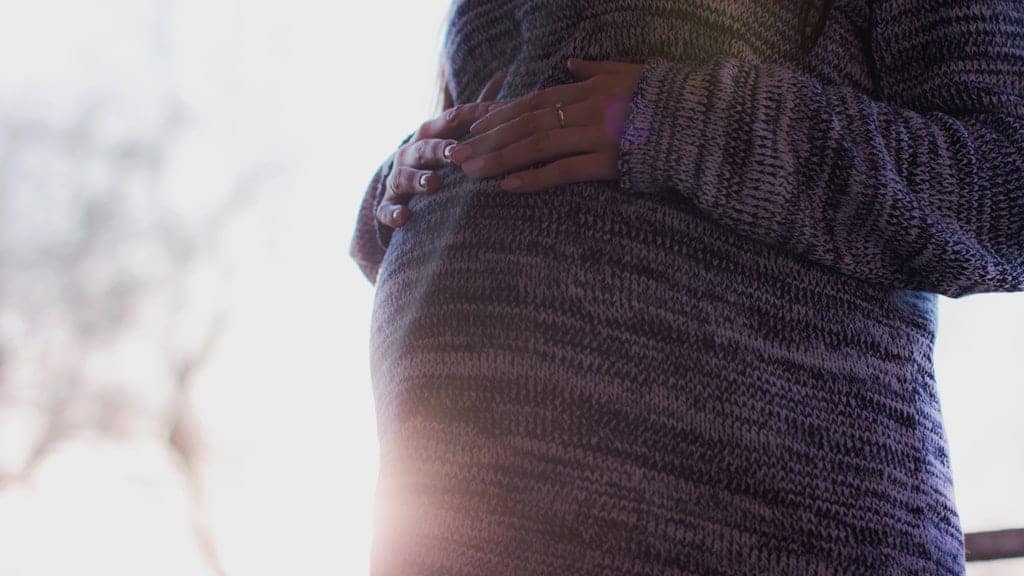Pregnancy is an incredible time in the life of an expectant mother. For roughly forty weeks or almost ten months, the human body sustains itself, feeding and sheltering a new being.
It’s really a marvelous feat.
And at the end of that relatively short space of time, a new remarkable individual is waiting to meet the world. With all of the wonder and new fantastic sensations that a pregnant person comes face to face with, there are a few side effects that come with the pregnancy territory. Furthermore, these symptoms are less than pleasant.
One such side effect is breast soreness and nipple discomfort. When compared to some of the other common byproducts of pregnancy, breast aches might not seem too severe. In fact, it is often a relatively painless and utterly normal consequence of pregnancy.
Nevertheless, breast pain, which often indicates the earliest tell-tale signs of pregnancy, is also one of the longest-lasting and most inconvenient of all. Fortunately, some confirmed strategies reduce breast pain in pregnancy, allowing you to focus on the more joyful aspects of this momentous time in your life.
Proven Tips to Reduce Breast Pain in Pregnancy
1 – Try a Sports Bra
At the very beginning of pregnancy, one’s breasts go through rapid, intense changes that often result in discomfort and breast discomfort in general. One way to alleviate this pain is by investing in a supportive sports bra.
Sports bras come in handy while exercising through pregnancy. Additionally, they also provide comfort and stability throughout daily activities. At the start of this journey, a sports bra that’s already in the drawer will most likely suffice. However, as your trimesters proceed, invest in a roomier sports bra. This support garment keeps your breasts lifted and free from the irritation of an underwire.
2 – Warm Baths
Warm baths are highly effective at assuaging breast aches throughout pregnancy. The warm water is soothing, helps reduce discomfort by decreasing swelling and inflammation, and can help diminish sensitivity, however temporary.
A warm bath can help reduce tension in general because it is a great way to be mindful and to relax, so it’s worth working into your nightly routine to help reduce breast pain during and after pregnancy.
Be mindful of the water temperature, however, as water that is too hot can increase breast discomfort and is also recommended against for pregnant women in general.
3 – Sleep in Bras without Underwire
Even if you have never been the type to sleep in a bra, or if you have always been someone who takes your bra off the very moment you get home from, pregnancy-induced breast soreness is a game-changer.
To help reduce the breast pain often felt in the morning or throughout the night, consider sleeping in a wire-free bra. These bras decrease irritation throughout the night and provide the much-needed support pregnant breasts need
4 – Avoid Extra Contact
Whether it contacts from your partner or the water in the showerhead, tender pregnant breasts benefit from reduced touches. Have a candid chat with your partner about your breast and nipple pain to prevent any hurt feelings or misunderstandings.
Also, consider trading out the shower for a bath until you feel a substantial reduction in breast tenderness. By steering clear of unnecessary touching, you’ll reduce breast pain. This strategy gives your breasts time to grow and expand in peace without the constant fear of uncomfortable consequences.
5 – Bra Pads
In spite of your best efforts at finding the right bra, your breasts might still be too tender to be touched even by the cups. If this is the case, try not to fret too much. Most department stores and undoubtedly online retailers can help you find relief with bra pads. Insert these pads into your bra to help alleviate any rubbing or irritation that can exacerbate breast tenderness. These provide more cushion and comfort for your sore breasts. Bra pads will also come in handy down the road if you decide to breastfeed your baby or pump while you are at work.
6 – Cold Compresses
There’s nothing quite like a cold compress to provide instant relief to breast tenderness. While this remedy is only one you can use at home, it is efficient. Take a wet or damp washcloth and press it against the tender areas for three to five minutes at a time. The cold will help desensitize the area, giving you the much-needed relief you deserve. You can also swap out the washcloth for a more potent remedy such as a frozen bag of vegetables if you so desire.
7 – Icy or Heated Pads
Not to be confused with the larger heating pad, you might have lying around from the days of your period, icy or heated breast pads specifically provide comfort for those aching breasts and sore nipples. These pads can either be heated in the microwave for a few seconds or placed in the freezer before being placed on the affected area. Another at-home remedy, these pads will provide swift relief when you need it most and can be used during pregnancy as well as if you decide to breastfeed down the road.
8 – Loose Clothing
When it comes to picking out your wardrobe, try to be mindful of how tight and compressing your tops are. Tighter clothing can restrict circulation, which can further inflame your sensitive breast area. Looser shirts and light, cotton fabrics are more breathable. Thus, they reduce breast pain and leave you feeling more comfortable. You’ll feel better, in the long term, this way.
9 – Reduce Your Sodium Intake
Once you found out you are pregnant, odds are, you stumbled across a smorgasbord of nutritional advice. One particular pearl of wisdom comes in handy not only in terms of staying on track with pregnancy weight gain but also in terms of alleviating breast tenderness. That advice is reducing the amount of sodium in your diet.
Foods that have large quantities of sodium lead to bloating. Furthermore, water retention promotes breast discomfort. By decreasing your sodium intake, you can lessen the condition and help your breasts to feel less heavy and achy.
10 – Breast Creams
Breast discomfort can result from increased circulation, expanding milk glands, a growth in fatty tissue, or exterior irritations, such as the lining of a bra or fabric of a blanket or blouse.
One proven way to help reduce breast pain associated with these causes is to invest in a breast cream. Look for one that has cocoa butter, shea butter, coconut oil, or lanolin the main ingredients. These powerful ingredients help keep the skin nourished and protected from irritants, which reduces the amount of discomfort you are probably experiencing.
Final Thoughts on Managing Breast Pain During Pregnancy
Although breast soreness and discomfort are considered entirely typical side effects of pregnancy, that doesn’t mean that you are doomed to suffer through them for forty weeks. This early symptom of pregnancy typically appears as early as two weeks after conception. While it often disappears by the second trimester, for many women, it either returns during the third trimester or never leaves to begin with.
Fortunately, these remedies mitigate some of the suffering associated with your body, preparing to feed and nourish your new baby in the months to come. By being proactive and engaging in these strategies before the pain gets too intense or even starts for that matter, you will feel and be much better off than someone who tries to soldier on through the pain.
As always, if you find yourself continually experiencing discomfort, and the remedies fail to provide relief, consult your OBGYN. She can tell you if taking over the counter pain relief such as acetaminophen is safe. And, she’ll provide advice on what to use if all else fails to provide sufficient improvement. Finally, always speak with your medical provider before administering any new medications. Keep in mind that these nine busy months fly by.
You deserve to enjoy this time. So celebrate your body for the remarkable role it plays in creating and sustaining a new life. Remember that you can take these steps to reduce breast pain instead of suffering through it in silence. This time is all about you and your remarkable journey into motherhood. And breast discomfort and nipple soreness should never stand between you and this extraordinary time in your life.



















